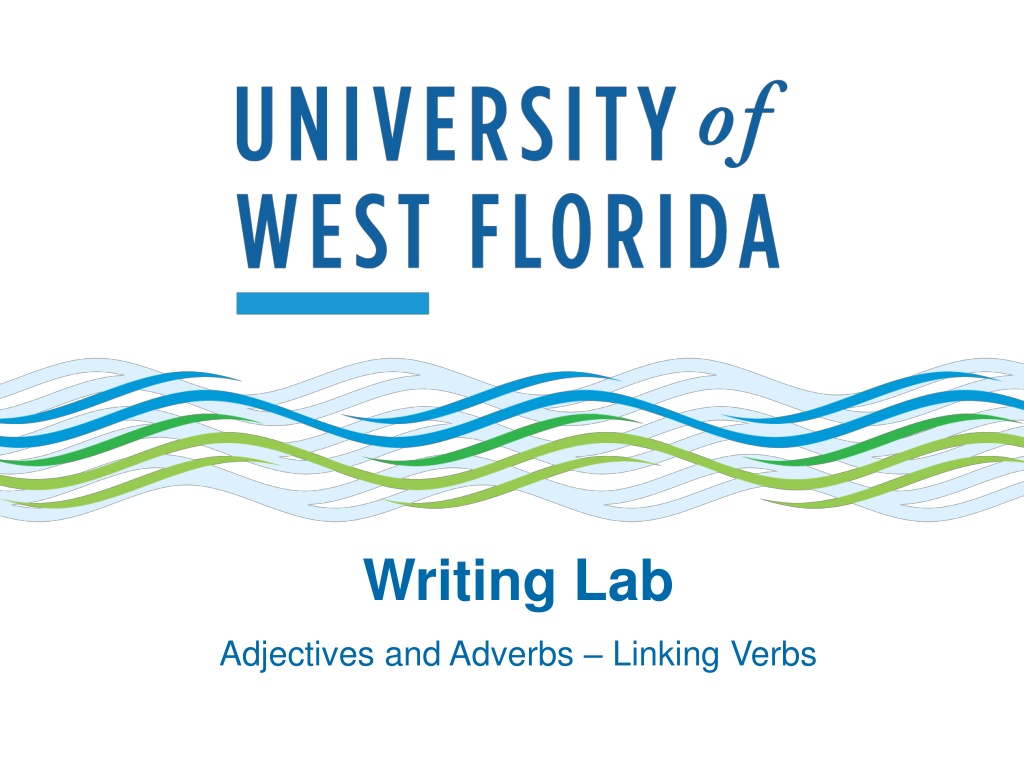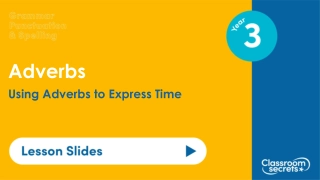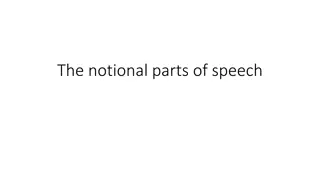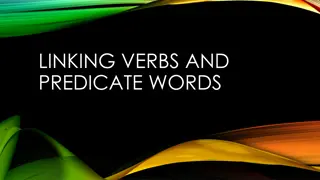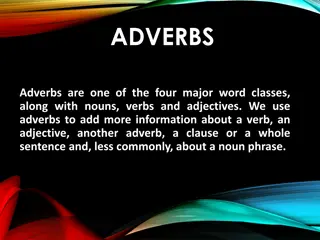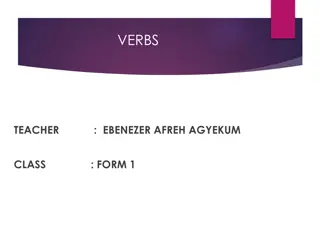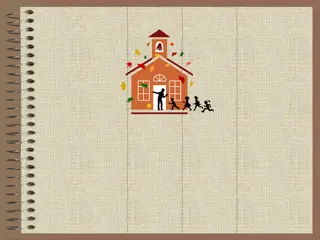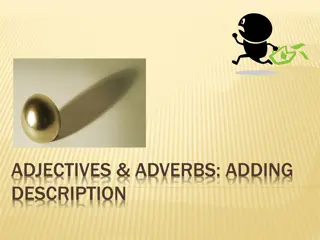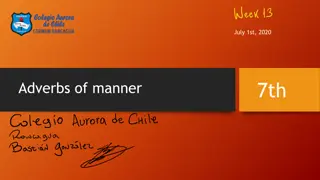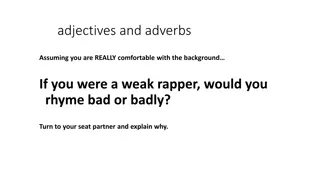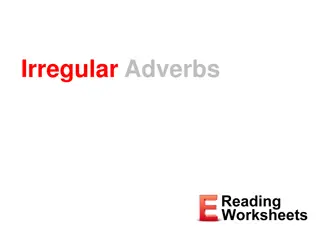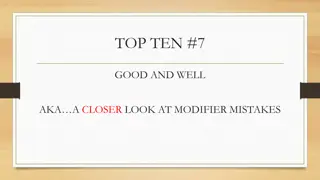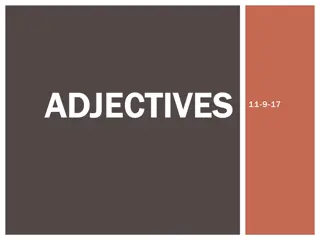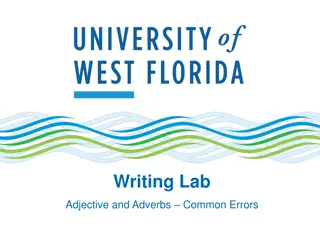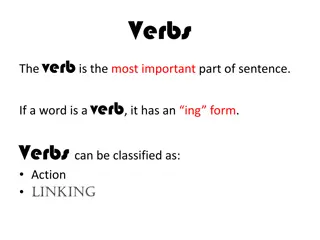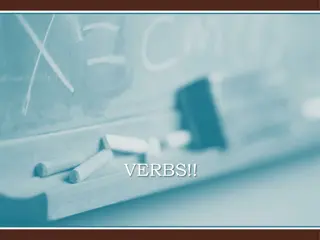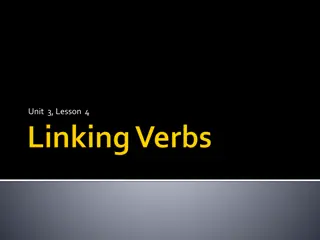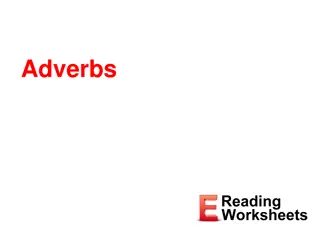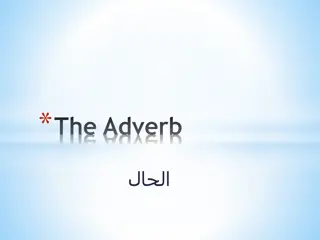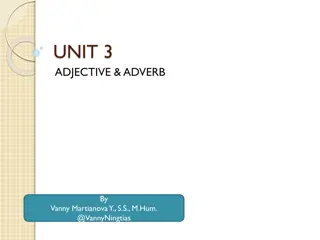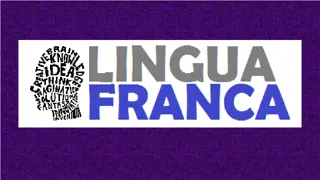Understanding Adjectives, Adverbs, and Linking Verbs in Writing
Learn about the significance of linking verbs in expressing a state of being, the role of adjectives in modifying nouns, and the function of adverbs in modifying verbs, adjectives, and adverbs. Explore examples of using "bad" and "badly," as well as "good" and "well" correctly. Test your understanding with sentences to distinguish between "bad" and "badly."
Download Presentation

Please find below an Image/Link to download the presentation.
The content on the website is provided AS IS for your information and personal use only. It may not be sold, licensed, or shared on other websites without obtaining consent from the author. Download presentation by click this link. If you encounter any issues during the download, it is possible that the publisher has removed the file from their server.
E N D
Presentation Transcript
Writing Lab Adjectives and Adverbs Linking Verbs
Linking verbs Linking verbs are used to show a state of being of the subject, not what the subject is doing. Some of these are as follows: The forms of be: is, am, are, was, were, been, being The sense verbs: feel (as an emotion), look, smell, taste, sound, feel Other verbs with linking use: appear, become, remain, stay, grow, seem
Adjectives with linking verbs Adjectives modify nouns and pronouns, specifying such things as how many, what kind, and which one. A predicate adjective usually follows a linking verb. He is strange. I am slow. The response was quick. She feels bad. We are poor. Think of the verb as simply connecting the noun and the adjective. The adjective is describing the quality of the noun, not the quality of the verb.
Adverbs Adverbs modify a verb, an adjective, another adverb, or a whole sentence. An adverb conveys such things as how, when, where, why, and for what purpose. Unlike the predicate adjective, this ly modifier generally follows an action verb. He talks strangely. I speak slowly. We need to act quickly. We sang badly. We speak poorly.
Bad and badly Bad is an adjective, so it is used with a linking verb: I feel bad about missing your graduation. The food tastes bad. The child is bad. Badly is an adverb, so it is used with an action verb: Tom writes badly. The chef cooks badly. The child acts badly.
Good and well Good is an adjective: You look good in blue. Well is and adverb: He get along well with his co-workers. Well is also an adjective when it is used to refer to health: I am not well today.
Testing your sentences He smells bad because he smells badly. (He has an odor because he has no sense of smell.) You wouldn t say I feel badly because then you re saying you are bad at feeling instead of that your emotional state is negative.
Thats all, folks! This lesson is part of the UWF Writing Lab Grammar Mini-Lesson Series Lessons adapted from Real Good Grammar, Too by Mamie Webb Hixon To find out more, visit the Writing Lab s website where you can take a self-scoring quiz corresponding to this lesson
